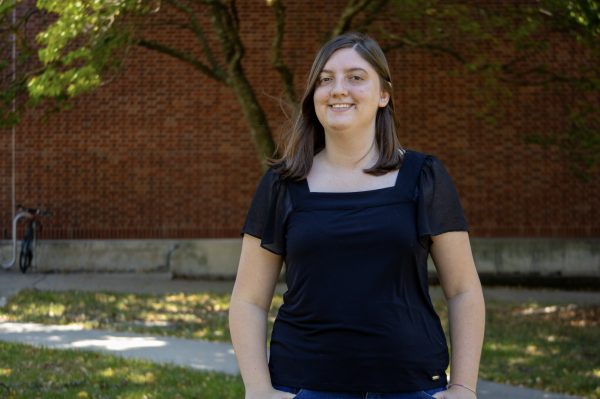This year, Drake will begin its Bulldogs Belong: Resilient and Thriving initiative, aimed at creating a support network for Drake students and a greater sense of belonging for the campus community. The initiative came out of the Quality Initiative for student retention that began two-and-a-half years ago.
The Quality Initiative used research from other universities and internal studies from Drake to determine where improvements in retention could be made. Quality Initiative writers divided the project into three pillars — well-being, sense of belonging and being a student-ready institution.
According to Deputy Provost for Academic Affairs Jimmy Senteza, being a student-ready institution means meeting students “where they are,” and getting them “to accomplish and succeed based on our mission.”
Bulldogs Belong is the first initiative implementing those three pillars on campus. Nate Newman, the chair of the Mission Retention Financial Aid Committee on faculty senate, and Associate Provost for Student Success Jenny Tran-Johnson are the other co-writers for the project. The initiative is in its first of three years, and its co-writers are still discussing many aspects of it. Its current implementation is visible to first-years.
“From the moment a student steps on campus, they have a network that they can connect into. Some of that will be intentional touchpoints and some will be connections they make on the way,” Tran-Johnson said. “The goal is that when you walk onto this campus, you know you’re surrounded by people who are here to help you.”
Bulldogs Belong comes at a time when public universities in Iowa are cutting programming related to diversity, equity and inclusion after the Board of Regents, the governing body overseeing Iowa’s public universities, voted to require public universities in Iowa to cut DEI programming that is not for university accreditation or research projects. Because Drake is private and does not have to comply with the ruling, Associate Provost for Campus Equity and Inclusion Terrance Pendleton said that he hopes to support the DEI work of public universities by holding events and conferences that anybody can attend, including an upcoming multicultural roundtable and African American Leadership Academy Workshop.
“I think the energy on campus really does help to sustain this work, because it’s not a requirement, because it’s usually just said, ‘You know what, everyone else is doing it, no one else is bothering with this work. We can pool our resources and do other things,’” Pendleton said.
Tran-Johnson said that a lot of the work for Bulldogs Belong is elevating existing resources. First Year Seminars and Welcome Week activities will highlight the advisor network, and the peer mentor/academic consultant role will be elevated to have more student interaction. First Year Seminars will also have meetings with similar First Year Seminars to build more connections between students throughout the semester.
“It is our imperative as an institution of higher education to support the ideals of diversity, equity and inclusion that are the fundamental basis for Bulldogs Belong,” Tran-Johnson said. “If you can’t be your true self here, you’re not going to feel that sense of belonging.”
Since he began his role during the 2023-2024 school year, Senteza’s main focus in the initiative has been the network-building for first-year students.
“The idea is that different sections work together on community-type activities with the goal of trying to ensure that we get to know each other, because we are all in this together,” Senteza said.
Tran-Johnson and Newman added that they are working to develop a second-year experience similar to the First Year Seminar.
“Looking at a second-year experience — is there something in the second year to form community, belonging — that all students are going to have this experience?” Newman said.
They are also looking to develop a fall community activity similar to the Drake Relays that creates the same bonds as Relays but earlier in the year; a first-generation student mentorship program led by a Campus Compact position that AmeriCorps will fund and support; and the American Talent Initiative Team which has developed a success coaching program for first-generation and limited-income students.
Tran-Johnson and Newman said that, while the project required funding, because a lot of initiatives were emphasizing existing resources, they were fiscally conservative. Part of the initiative’s budget comes from the holistic wellness fee introduced last year.
Pendleton spearheaded the part of Bulldogs Belong related to the National Coalition Building Institute, a leadership training institute for topics related to equity and belonging. Pendleton hopes to train more Drake campus members, especially students, of which there are few, to become NCBI leaders who can run workshops and programs.
“[They] will be the ones who will go off and improve the world and make it better in a way that perhaps my generation has been struggling with, and so the question that we have is ‘How do we prepare students outside the classroom to take on this very momentous role?’” Pendleton said.
Pendleton is working on outreach for the NCBI leadership program with the goal that student organization leaders undergo the leadership training and spread information about what they learned. In the fall, existing leaders will lead Courageous Conversations, workshops focusing on respectful conversations about difficult topics.
This year, the team will also be monitoring responses from existing surveys, student and faculty senates and other forums. Pendleton said he hopes to visit student organizations to gauge responses.







